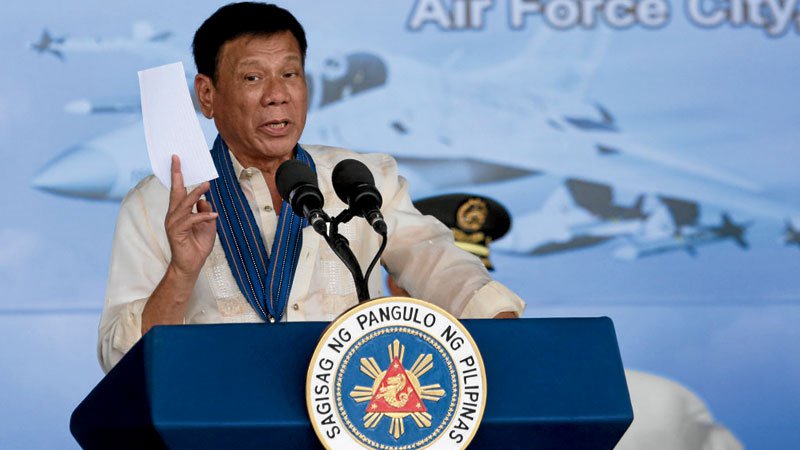TOKYO, Japan — Acid-tongued President Rodrigo Duterte takes his diplomatic roadshow to Japan on Tuesday, days after his apparent tilt towards China raised questions about his strategic intentions.
The Philippines and Japan have long been key US allies in Asia, but Duterte has done a dramatic U-turn since coming to office in late June.
That appeared to culminate last week in Beijing where he declared his “separation” from the United States, played down a maritime dispute with China and pledged to enhance friendship and economic ties.
READ: Economic, defense cooperation up in Duterte’s 3-day state visit to Japan
Back home on Saturday, however, the former mayor seemed to walk back his comments, saying he would not be severing the alliance with Washington.
And on Monday, he went further, telling Japanese media that the US will remain the country’s sole military ally.
“The alliances are alive, it is there,” he said in a reference to the United States, according to Kyodo News. “There should be no worry about changes of alliances. I do not need to have alliances with other nations.”
Other Japanese media including the top-selling Yomiuri Shimbun quoted him as saying that all military activities with the US should be halted.
READ: Japan in quandary over Duterte’s remarks
His seesawing has been closely watched in Japan, a major investor and aid donor to Manila that is wary of China’s rising influence.
Prime Minister Shinzo Abe has worked to beef up ties with Manila by providing patrol boats and has supported it in the territorial row with China, as Japan seeks support in its own maritime dispute with Beijing.
Duterte’s predecessor took Beijing to an international tribunal over its extensive claims in the South China Sea — where it has built artificial islands capable of hosting military facilities — and the Philippines won a resounding victory in July.
Japan’s Asahi Shimbun newspaper said that improvement in diplomatic relations among “neighboring nations” is desirable in principle.
“Now the most important thing there is the shared interest… it’s about the South China Sea,” [Duterte] said.
“But if they disrespect the rule of law for the sake of narrow bilateral interest, that would be a grave concern for the Asian region,” it said in a Saturday editorial, referring to Duterte’s Beijing visit.
Duterte told Japanese public broadcaster NHK that his talks with Abe will center on economic cooperation and “shared interest” in an interview ahead of his three-day visit.
“Now the most important thing there is the shared interest… it’s about the South China Sea,” he said.
Duterte has made a habit of hurling sharp, even profane, verbal barbs at the US and President Barack Obama, which resulted in Washington cancelling talks between them at an ASEAN summit last month.
“President Duterte is an anti-US nationalist and populist leader, which doesn’t necessarily mean he is pro-China,” Miyake told AFP.
But Kunihiko Miyake, a former Japanese diplomat and visiting professor at Ritsumeikan University, warned against reading too much into such rhetoric.
“President Duterte is an anti-US nationalist and populist leader, which doesn’t necessarily mean he is pro-China,” Miyake told AFP.
Still, he noted the need to “watch closely” his future words and actions.
In recent months Abe has criticized China for rejecting the international tribunal ruling, which said Beijing’s expansive claims to the waters had no legal basis.
At talks Wednesday, Duterte and Abe are expected to agree on expanding ties in areas of “maritime security and defense cooperation,” a Japanese embassy official in Manila told reporters. CBB


